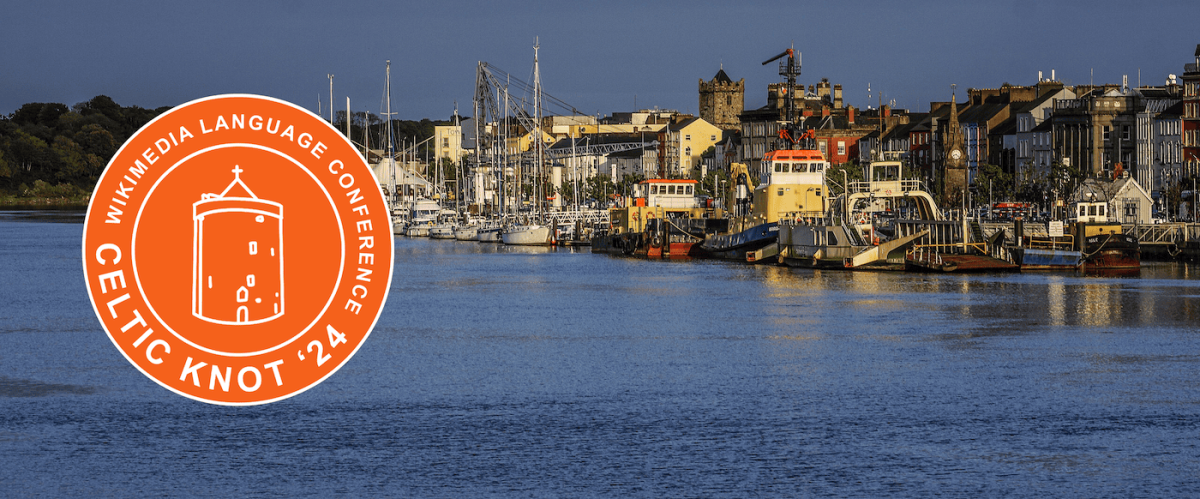By Richard Nevell, Programme Manager for Wikimedia UK
In late September, Wikimedians from as far away as Malaysia gathered in Waterford in Ireland to share stories of success, challenges, and to learn from others, all with a focus on minoritised languages. The Celtic Knot Conference is a space for different communities to connect and support each other in their efforts to improve their languages’ representation online.
Back in the winter of 2023, WMUK and Wikimedia Community Ireland (WCI) began collaborating on the conference idea with a focus on the Irish language. We wanted to put together an ambitious programme of speakers with cultural events to tap into the local community. Linked to that was the planned launch of WCI’s WikiWomen Erasmus+ Project in 2024. The road to Waterford had started.

2024 was the first in-person Celtic Knot since 2019 in Cornwall, with online editions in between necessitated by Covid, so it was a special moment. Every edition of the conference has a different focus, and the idea is that it is an opportunity to boost that particular community. The conference had a celebratory feel, partly because of the WikiWomen Erasmus+ launch, and conversations flowed between engaging sessions. Each of the three days had a different theme in the programme: the past, the present, and the future of language communities.
Across the three-day conference, 150 people attended in-person or online, with 35 different language communities represented. While the core of the Celtic Knot’s focus is the Celtic family of languages – Welsh, Breton, Irish, Gaelic, Manx, and Cornish – one of the conference’s strengths is the way it can connect communities. Close language groups may face similar challenges, but wider participation gives more opportunity for unexpected connections and inspiration.
The conference sessions were recorded and uploaded to Wikimedia Commons. I won’t detail the whole programme as it is difficult to pick favourites from such an excellent programme – though ‘Count von Count teaches Basque’ was the most entertaining lightning talk I have ever been to! There were particular themes that were interesting. It struck me that the programme was very 2024 in its flavour, acknowledging the importance of the Wikimedia projects to translation tools and large language models. Large language models present challenges and opportunities to Wikipedia, especially smaller language communities, so it was an important topic to discuss.
WMUK is proud of the work of the Welsh Wicipedia, with numerous successes over the years – not least of which is the ongoing partnership with the National Library of Wales. Jason Evans and Siôn Jobbins represented the Welsh Wicipedia with stories of institutional collaboration and personal editing. The feedback after the conference showed that stories of success like these inspire others, showing what can be accomplished. Advocacy for languages can be a long journey, and knowing that others have travelled down that path and you might follow, or find a different route offers hope.
The Celtic Knot is one of the major events in WMUK’s calendar, and working with WCI has been a highlight of 2024. While this particular edition of the conference is done and dusted, we are starting to look to the future and what 2025 holds and how we can continue our support of language communities and make the most of the firmly established connection between WMUK and WCI. We look forward to gathering again to discuss languages, and share even more stories of success.






